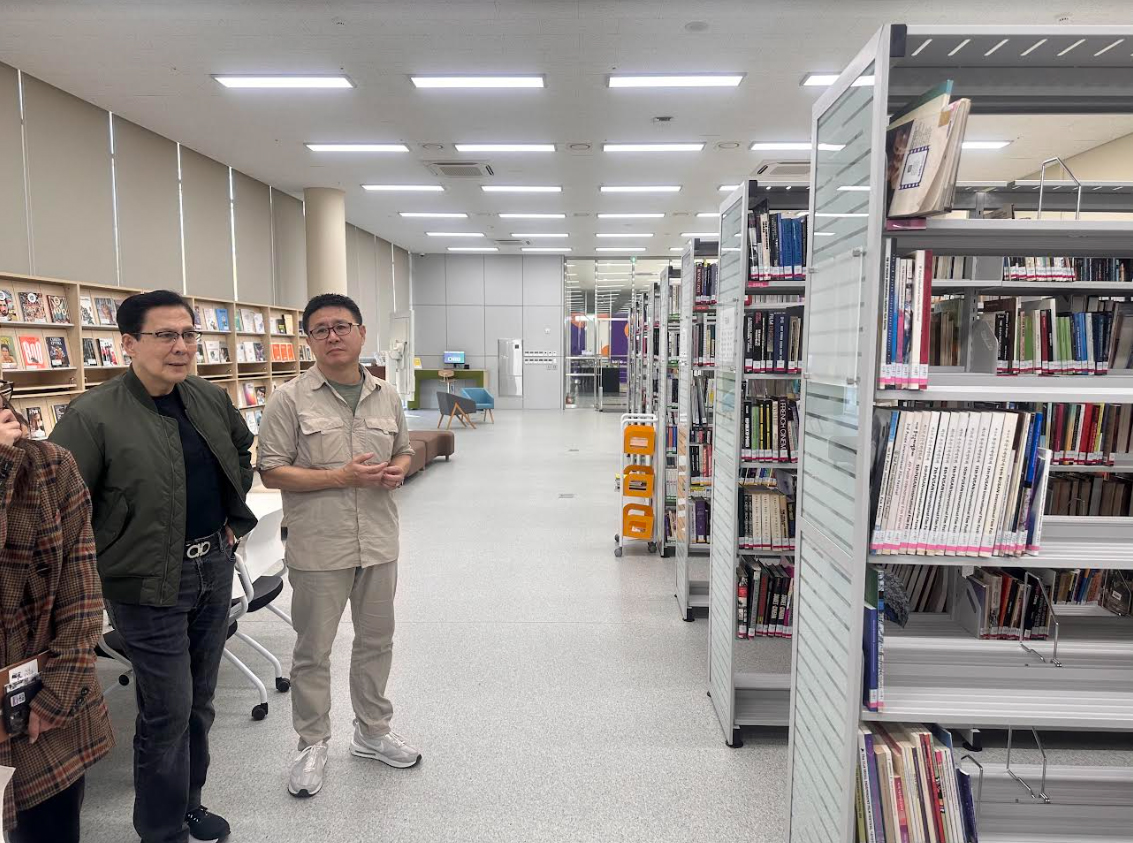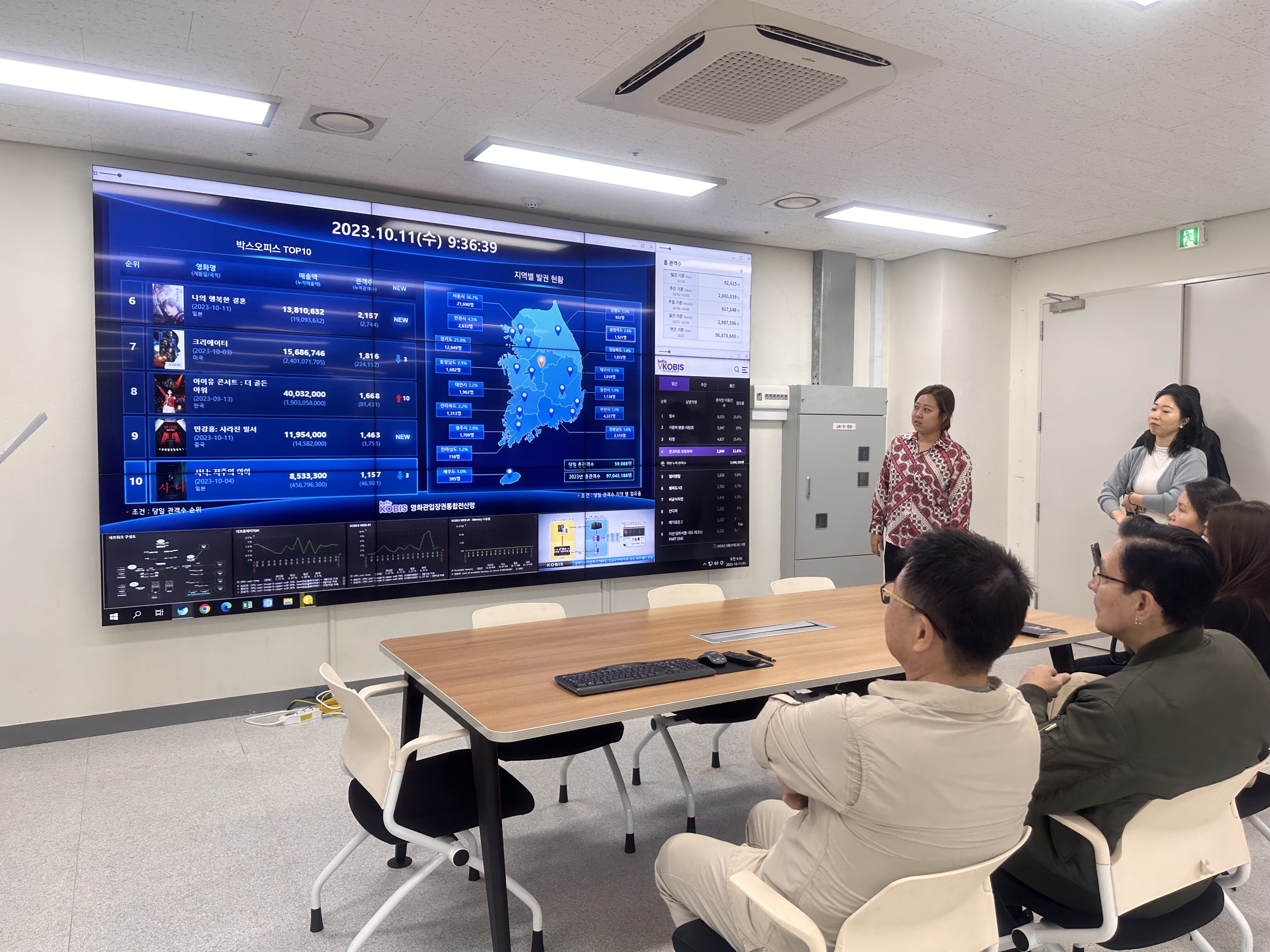What Korea is doing for its films that we should be doing for ours
Getting to know the Korean Film Council
By Rica Arevalo
At A Glance
- They developed KOBIS, the Korea Box Office Information System, which collects and processes movie theater admissions information in real time all over Korea.

On a recent trip to South Korea, we made sure to visit the Korean Film Council (KOFIC) in Haeundae, Busan.
KOFIC is under the Ministry of Culture, Sports, and Tourism that aims to improve the quality of Korean films and promote them worldwide. Think of the success of Oscar winner, Parasite, an unexpected critical and box-office hit that captured the attention of moviegoing audiences.
We met KOFIC chairman Park Ki-yong who toured the Philippine and Mongolian delegation around its state-of-the-art building. At the lobby were film posters and storyboards made by famous directors like Bong Joon-ho when he was still a student. We joked to Park that we could sell it in the marketplace and get rich!

KOFIC has been the Film Development Council of the Philippines’ partner in the Asian Contents & Film Market and the Busan International Film Festival.
An award-winning director, Park came from the academe. He directed the films Motel Cactus (1997), which won the New Currents Award at the 1998 Busan International Film Festival, and Camel(s) (2001), which won the Regard d’Or at the 2002 Fribourg International Film Festival. He also produced Park Kwang-su’s To the Starry Island (1993), a historical war drama.
He has solidified the heads of film agencies and commissions in the Asian region. Under his reign, the thrust to support projects for planning and developing Korean movies continued. KOFIC has helped distribute independent and art films, and bringing Korean films in foreign film festivals, providing business matching services, improving the technical and building infrastructure to develop state-of-the-art Korean films, and study policies for revitalizing the film industry to create an environment for fair competition.

They also have a 300-seater screening room, boasting of Dolby Atmos sound with a 4K resolution projector. The library is for researchers, students, and film scholars. One is awed by the Koreans’ support to establish an Asian film hub leading it to the world market.
But the biggest eyeopener for us was when Park brought us to the war room where all the box-office results were displayed in real time! They developed KOBIS, the Korea Box Office Information System, which collects and processes movie theater admissions information in real time all over Korea. One can see the local and overseas box-office, market share by region and format, among others with just one click.

The key word is transparency. All movie theater owners and producers are mandated by law to submit data on this service platform. Park explained that at first, in 2004, there was resistance, but since the mandate was made into law, everyone abided by 2013.
He has been successful in promoting and supporting the Korean film industry at home and abroad. Sadly, his term will end in January 2024.
As of this writing, based on the KOBIS website, the comedy film, 30 Days, is number one at the box-office. In this film, Jung-Yeol (Kang Ha-Neul) and Na-Ra (Jung So-Min) get married. Due to their opposite personalities, they begin to fall out of love. Filing a divorce is their solution. But on the day they are to file a divorce, they get into a car accident. Waking up at the hospital, Jung-Yeol and Na-Ra both lose their memories. They cannot remember each other.

Data is king and one should know how to use it. If the producers, distributors, and theater owners know the list of top films, then they can foresee the audience’ tastes.
We all know the Korean wave—eye-catching melodramatic series, mukbang eating shows, highly-energetic boy and girl bands, but all these are found in Korean cinematic gems.
We hope that the Philippines follows this milestone soon as we do not have an official box-office data that can be seen or analyzed by the public. Calling on our leaders in Congress to check KOBIS www.kobis.or.kr and learn from our Korean neighbors.